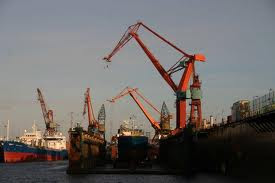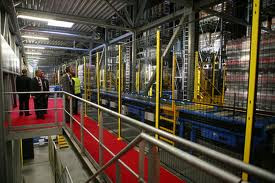

One day as I started checking my emails, I briefly skimmed through the subject lines of over 100 of them. They all seemed to be typical emails, I mean people looking to set up appointments, asking questions about their supply chain, and trying to ensure their product is safe.
As I neared the bottom of the emails one subject line caught my attention. It read, "Logistic Software Sucks...!" Naturally I was quite curious, as I am a definite proponent of Freight Software. As I started reading the email I could tell the tone on the other end was very bitter, and angry. The writer went on to say that he felt cheated, because the company that he was going through was charging him for the software system that he was using, and he didn't feel as if there was any real value. He went on to say that when he met with the Sales Person he explained to him that he wanted something state of the art, that wouldn't become obsolete within the next couple of years. The sales rep assured him that he had just the thing for his company.
As it turned out, the customer had spent in the neighborhood of $2500.00 for this software system, and he really didn't use any of the features. The software was definitely top of the line, and had all the "bells and whistles" that any large company would had loved to have in their possession. This customer was very upset with his purchase. It was to the point wherein I felt that I needed to pick up the phone to call him back. We chatted for awhile, and I think he vented and felt better, but he did feel that his purchase was a waste. I helped him by showing him the best way to hide many of the features that he had no need for, and take advantage of the features that he did need.
The customer swore to never use this company again, and that he would tell all of his business colleagues how cheated he felt.
For companies who are of small to medium size($75k - $5 million), typically a standard software system will be robust enough for their supply chain needs. It is easy to see how a customer can get caught up in the "cool" sizzle of a product, especially during this age wherein you can get software to perform many different tasks. However, there are some basic features/values that a shipper needs to focus their attention on when it comes to Logistic Software.
1) Ease of Use- The system needs to be easy enough for anyone in the warehouse to use without hesitation. The strongest software systems these days are basically point and click. The sizzle, is put into the information and reports, that can be generated, and not how "cool" the site looks.
2) Time Savings- This shouldn't surprise anyone, because these days "time is money" and the warehouse personnel typically has multiple job dulties to get done before they punch out. Being able to navigate and process shipments with quickness and efficiency is a top priority.
3) Cost Savings- Nowadays, just getting a great software system is not enough. If your system doesn't come equipped with stellar rates then you need to seek out another provider. Seeking the services of a strong 3PL can help in both these areas.
4) Creating and Quoting All Types of Loads- Your software has to be able to allow you to create a Bill Of Lading on the site quickly. Gone are the days of filling out manual bills to give to the carriers. With top software, it should allow for you to create and send via online, or at the worst case scenario, send it through a fax.
5) Tracking and Tracing- When I think of this feature I think of my first company that I worked for, Fedex. They took this concept and reinvented it several times over. The idea of tracking and tracing is not just an extra, nowadays, but a must. Freight carriers, small package carriers, Freight Forwarders all have to be on top of their game when it comes to having tools to locate a customer's package, or they will not keep the business. Along with this, is also being able to get a POD (proof of delivery) online as well.
6) Claims- Although this is a sore subject for many customers in the shipping world, the reality is that bad things happen to shipments. A good software system will allow the customer to file a claim online, as well as getting feedback from that very same portal, regarding the progress of the claim.
www.made-from-india.com offers solutions that help companies to improve bottom-line operational efficiency and meet new performance objectives. The exclusive database covers information about Logistic & Transport services in India, Logistic & Transportation Products in India, exporters of Logistic & Transportation Accessories, Logistic & Transportation products importer, Logistic & Transportation supplier, Logistic & Transportation manufacturers, & Wholesalers, logistics services in India, and customized global transportation.












